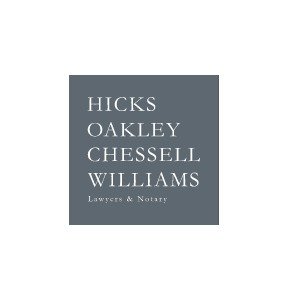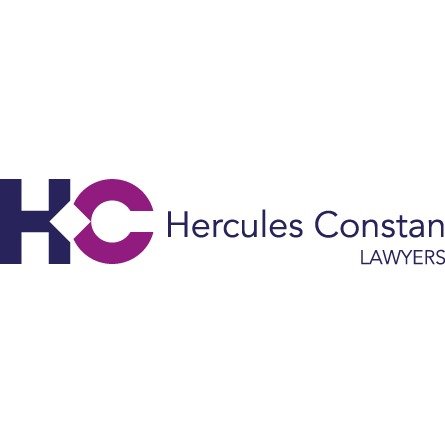Best Art & Cultural Property Law Lawyers in Melbourne
Share your needs with us, get contacted by law firms.
Free. Takes 2 min.
List of the best lawyers in Melbourne, Australia
About Art & Cultural Property Law in Melbourne, Australia
Art & Cultural Property Law in Melbourne encompasses a range of legal issues related to the creation, sale, acquisition, protection, and restitution of artworks and cultural property. This field of law addresses the rights of artists, collectors, galleries, museums, and indigenous communities, ensuring that art and cultural heritage are appropriately managed and protected. Melbourne, being a city rich in culture and art, hosts numerous galleries, museums, and cultural institutions, making it an epicenter for art-related legal activities within Australia.
Why You May Need a Lawyer
There are several situations where individuals or organizations may seek legal advice in Art & Cultural Property Law:
- Disputes over the ownership of artworks or cultural items.
- Legal issues concerning the sale or acquisition of art pieces.
- Protection of intellectual property rights for artists and creators.
- Addressing claims related to looted or stolen art.
- Advice on export and import restrictions for cultural goods.
- Restitution claims of cultural property to indigenous communities or rightful owners.
- Negotiations and drafting of contracts for art commission or exhibition.
- Advice on heritage legislation impacting property and assets.
Local Laws Overview
In Melbourne, several key legal frameworks and legislations are relevant to Art & Cultural Property Law:
- The Copyright Act 1968 (Cth): Protects the intellectual property rights of artists and creators for their original works.
- The Protection of Movable Cultural Heritage Act 1986 (Cth): Regulates the export of significant cultural property, ensuring items of cultural importance remain in Australia.
- The Aboriginal Heritage Act 2006 (Vic): Provides protection for Aboriginal cultural heritage in Victoria, ensuring its preservation and acknowledgment.
- The Trade Practices Act 1974 (Cth): Addresses misleading or deceptive conduct in the sale and marketing of artworks.
- Local planning controls and heritage overlays: Impact how heritage-listed properties can be altered or developed.
Frequently Asked Questions
What is considered cultural property under the law?
Cultural property generally includes artistic, literary, or historical objects, which can be movable or immovable, and hold cultural significance for a community or nation.
How do I prove ownership of an artwork?
Ownership can be proven through documentation such as bills of sale, provenance records, certificates of authenticity, and any agreements related to the art piece.
What rights do artists have over their creations?
Artists possess moral rights and economic rights that allow them to control the use of their artworks, receive compensation, and ensure their work is not altered or destroyed without consent.
What steps can I take if my cultural property is stolen?
If cultural property is stolen, report it to local authorities and consult a lawyer to assist with recovery efforts, legal claims, and potentially notify international art databases.
How does one legally export cultural property out of Australia?
To export cultural property, one must apply for a permit under the Protection of Movable Cultural Heritage Act 1986. Certain items may require permission from the Ministry for the Arts.
What is the process for cultural property restitution in Australia?
Restitution usually requires demonstrating prior ownership or cultural connection to the property. Legal counsel, dialogue between parties, and mediation can facilitate the process.
Are there legal requirements for art galleries or dealers?
Yes, galleries and dealers must adhere to trade practices legislation and consumer protection laws, ensuring transparency and authenticity in their transactions.
Is there protection for indigenous art and cultural heritage?
Yes, both state and federal laws, such as the Aboriginal Heritage Act, provide protection and promote the preservation of indigenous art and cultural heritage.
How can copyrights be enforced for artworks?
Copyrights can be enforced through legal actions against unauthorized use or reproduction, seeking injunctions, and claiming damages for infringements.
Can cultural heritage sites be redeveloped?
Development of heritage sites is heavily regulated and requires compliance with planning laws, obtaining necessary permits, and consultations with heritage authorities.
Additional Resources
For those seeking further information or assistance, the following resources may be useful:
- The Australian Copyright Council for copyright-related queries.
- The Museums and Galleries Australia (Victoria) for networking and support.
- Victorian Aboriginal Heritage Council for indigenous heritage issues.
- The Arts Law Centre of Australia for free legal advice for artists.
- Local government planning departments for advice on heritage-listed properties.
Next Steps
If you find yourself in need of legal assistance in Art & Cultural Property Law, consider taking the following steps:
- Document all relevant information and gather any supporting evidence or records regarding your situation.
- Consult with a lawyer specializing in Art & Cultural Property Law to discuss your case and available legal options.
- Seek recommendations from professional associations or networks in the art and legal community.
- Attend appropriate workshops or seminars to gain further understanding of your rights and obligations.
Through professional guidance and informed decision-making, you can effectively navigate the complexities of Art & Cultural Property Law in Melbourne.
Lawzana helps you find the best lawyers and law firms in Melbourne through a curated and pre-screened list of qualified legal professionals. Our platform offers rankings and detailed profiles of attorneys and law firms, allowing you to compare based on practice areas, including Art & Cultural Property Law, experience, and client feedback.
Each profile includes a description of the firm's areas of practice, client reviews, team members and partners, year of establishment, spoken languages, office locations, contact information, social media presence, and any published articles or resources. Most firms on our platform speak English and are experienced in both local and international legal matters.
Get a quote from top-rated law firms in Melbourne, Australia — quickly, securely, and without unnecessary hassle.
Disclaimer:
The information provided on this page is for general informational purposes only and does not constitute legal advice. While we strive to ensure the accuracy and relevance of the content, legal information may change over time, and interpretations of the law can vary. You should always consult with a qualified legal professional for advice specific to your situation.
We disclaim all liability for actions taken or not taken based on the content of this page. If you believe any information is incorrect or outdated, please contact us, and we will review and update it where appropriate.














